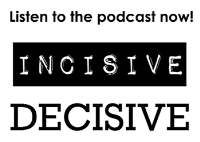.png?width=1627&height=517&name=Full%20TCA%20Logo%20(Purple).png)
‘Every action has an equal and opposite reaction’ – I can’t remember which law this is. Is it the second? I’m sure someone will tell me.
It seems to me that we’re seeing the disadvantage of such a law rippling through healthcare practice.
Two stories to illustrate the fact that we’ve not carefully considered consequences of our short term and relatively short term actions against the longer term problems that they cause.
Story One:
I went to give blood two weeks ago at the Nottingham donor centre.
It’s a lovely little trip out. I jump on the tram with my headphones on, go into town and then walk around to the donor centre. The staff there are lovely. I give blood, I feel a little bit self-righteous (o negative) and I wander back through town, pick up anything I might need (usually nothing) and jump back on the tram.
It’s not a hardship for me to give blood, it’s actually quite a pleasant experience all round and I get to eat conscious free biscuits!
On this occasion it was a new member of staff taking me through the process and that was quite obvious, although not unpleasant in any way.
The gentleman who was doing it was very thorough but it was obviously not as slick as it might have been for one of the guys that had been there a long time.
In this day and age, it’s not nurses who take your blood in the blood service, it’s trained healthcare assistants.
There was a little bit of to-ing and fro-ing because I’d been in China but they decided that I was not ‘unclean’ and I proceeded to the actual blood giving stage. The member of staff that was working with me explained that he was new and asked if it was alright for him to cannulate me today. He explained that he had already cannulated 19 people and only missed once.
I explained to this chap that it was no drama to me. The veins in my arm are like drainpipes and people often practice cannulation on me at work so in a lunchtime I might get cannulated six times!!
He proceeded to cannulate and missed in my left arm in the lateral vessel.
No drama – I have missed plenty and do miss plenty when I’m doing sedation.
He became very apologetic though, in fact it seemed, overly apologetic. I was trying to reassure him that it was fine and we could just carry on until he informed me that he would have to send me home…
After some discussion and clarification, it turns out that a missed cannulation on the blood service means you have to stop and send the patient home.
One of the nurses came over to speak to me, it seemed to ‘counsel me’ for the trauma.
I showed her my right arm and the vessels there and said “Carry on and cannulate me again. I promise you have my consent... take my blood”
They can’t, they won’t and they didn’t.
I got sent away and the chap who was trying to cannulate me got really upset and he had now missed 2 out of 20.
My wife works with donated blood all the time with children with cancer. There’s not a lot, it needs to be stocked up all the time and there’s always a shortage and we’re turning 10% of people away because we won’t cannulate them a second time!
Story Two:
I took a tooth out of a patient in the practice the other day after I had placed four implants in his lower jaw.
He is 75 and his molars have roots like grappling hooks. You’ll know the type if you’re a dentist. A little bit of recession but not a lot, teeth like glass and roots that are splayed – very difficult to extract.
It took about five minutes to get it out after sectioning the roots and I left everything intact, including the sinus floor and tidied it up and closed it up with a Vicryl suture. I said to him afterwards, half joking but half seriously “Don’t let anyone take your teeth out apart from me”
I say that because I carried out 10,000 surgical extractions before I stopped counting surgical extractions and 3,000 of those or there abouts are lower third molars.
I worry that if he was to go to someone else, perhaps someone relatively recently out of dental school, it would be carnage.
I worry about this because I chat to new graduates regularly about their oral surgery experience and how many teeth they’ve taken out and the figure is shocking.
I conservatively estimate that if you took every single dental graduate in the UK last year, added up the number of teeth they had taken out and doubled it, it wouldn’t get close to the amount of teeth I have taken out.
What have these two stories got in common?
We’re protecting patients at one end to disadvantage patients at the other.
I was not re-cannulated at the blood service in case I got a haematoma in my left arm or it was a little bit uncomfortable and I made a complaint. Somebody at the other end who needs platelets or a unit of blood before they die might not be able to get it to protect against a complaint from me!
We’re not letting new graduates practice and get appropriate numbers of treatment and ‘cutting’ and experience on patients at one end because of regulations and red tape and at the other end they’re loose in practice and unable to carry out the procedures properly.
Regulation and procedure and safety and security are one thing, but it’s senseless to rob Peter and not even be able to pay Paul back 1/10thof what you’ve taken.
Blog Post Number: 1885






Leave a comment